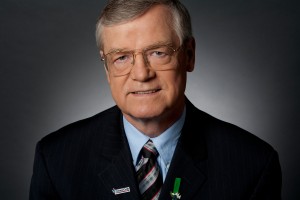Elected to Congress in 1974 as a Democrat by working class voters in a Republican district, when he arrived in Washington he was appalled by the stench of corruption still rising from the Watergate scandals. He and other newcomers set out to clean house — the House of Representatives — what used to be called, as he liked to remind us, “the People’s House.” They opened the windows and tried to toss the money-changers out through them.
He fought for transparency in government, for requiring chemical companies to tell people about the toxic substances poured into their neighborhoods, for public transportation, for veterans back from Vietnam suffering from PTSD and the effects of Agent Orange. But when he railed against the buying and selling of influence and “pork-barrel” graft, he found himself at odds with the leaders of his own party.
Defeated in his race for the Senate from Pennsylvania, he became head of the Claremont School of Theology (he had a divinity degree) and then general secretary of the National Council of Churches, which was under odious and malicious attacks at the time from the political and religious right and from neo-conservatives who feared the gospel of peace might subvert their imperial designs on American power. An elder in the Methodist church, Bob was steeped in the ethical teachings of the 18th century evangelist John Wesley who, believing faith called for action, founded the movement whose disciples opposed slavery, served the neglected and needy, worked for prison reform, and started schools and orphanages, weaving in countless ways what became part and parcel of America’s social contract.
This heritage Bob combined with the prophetic witness of the Hebrew prophets, mixed both with the Christian theologian Reinhold Niebuhr’s grasp of realpolitik, and came out swinging. Called to lead the non-profit, non-partisan citizens lobby Common Cause, he was outraged at the dirty money pouring secretly into our political system, outraged at the corporate titans and predatory rich who bought up politicians as if they were hog futures, outraged at the K-street fixers who had once been public servants, outraged at the violation and undoing of laws and regulations established over time to serve as a brake on private wealth and power.
He abhorred the Supreme Court’s Citizens United Decision, which he said was pulling the shroud of plutocracy over our barely-breathing body politic. Recently, he took on President Obama for his grubbing of big donations for his new advocacy organization. “It just stinks!” Bob said. He feared for the country’s egalitarian spirit if the excesses of money in politics were not curbed.
One day, over coffee, we talked about how, if the predators of democracy are going to use brass knuckles to pulverize us, we have to fight back with sharp elbows. He never looked happier than when he was taking them to court or mounting a peaceful protest against them, as he famously did against the multibillionaire Koch brothers and their courtiers gathered in Palm Springs.
His outrage was never about anger, it was about injustice. And he never demonized or despised his adversaries. He just thought it wrong for them to use their great advantage of wealth to buy the country up and the government off. So he got on his treadmill this week, preparing for yet another trip, another meeting, another rally — this time in Oklahoma — to do battle with the plutocrats and their mercenaries. He didn’t make it. But others will, and somehow, I don’t think they will be alone.


